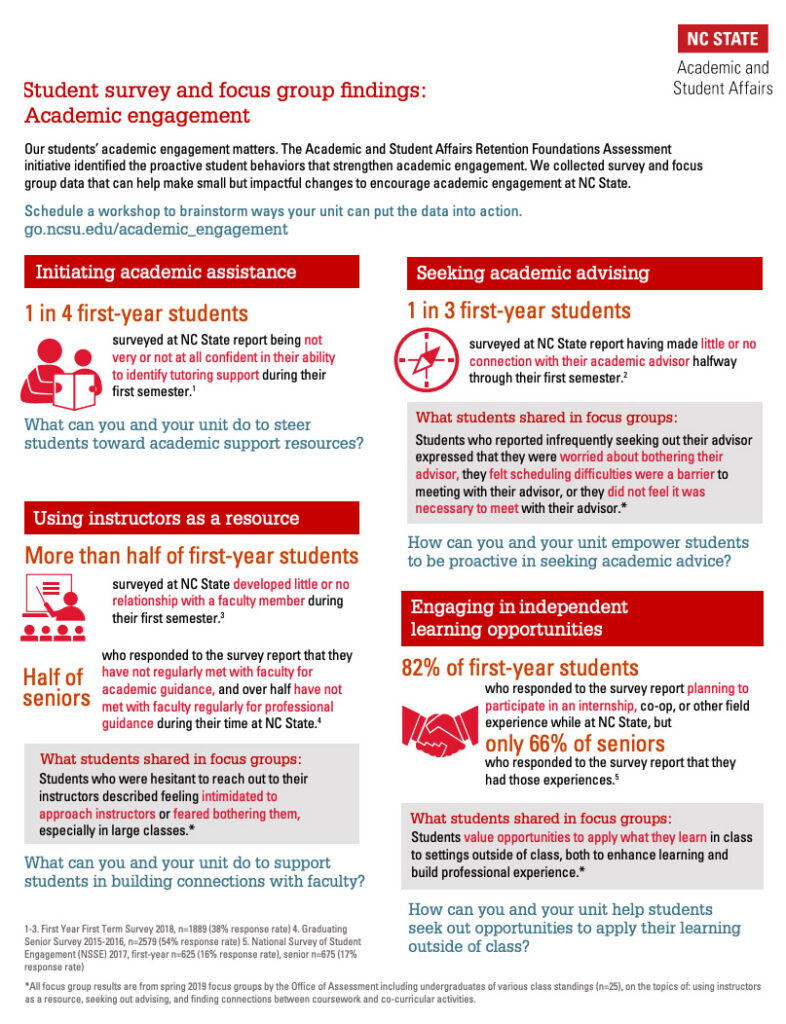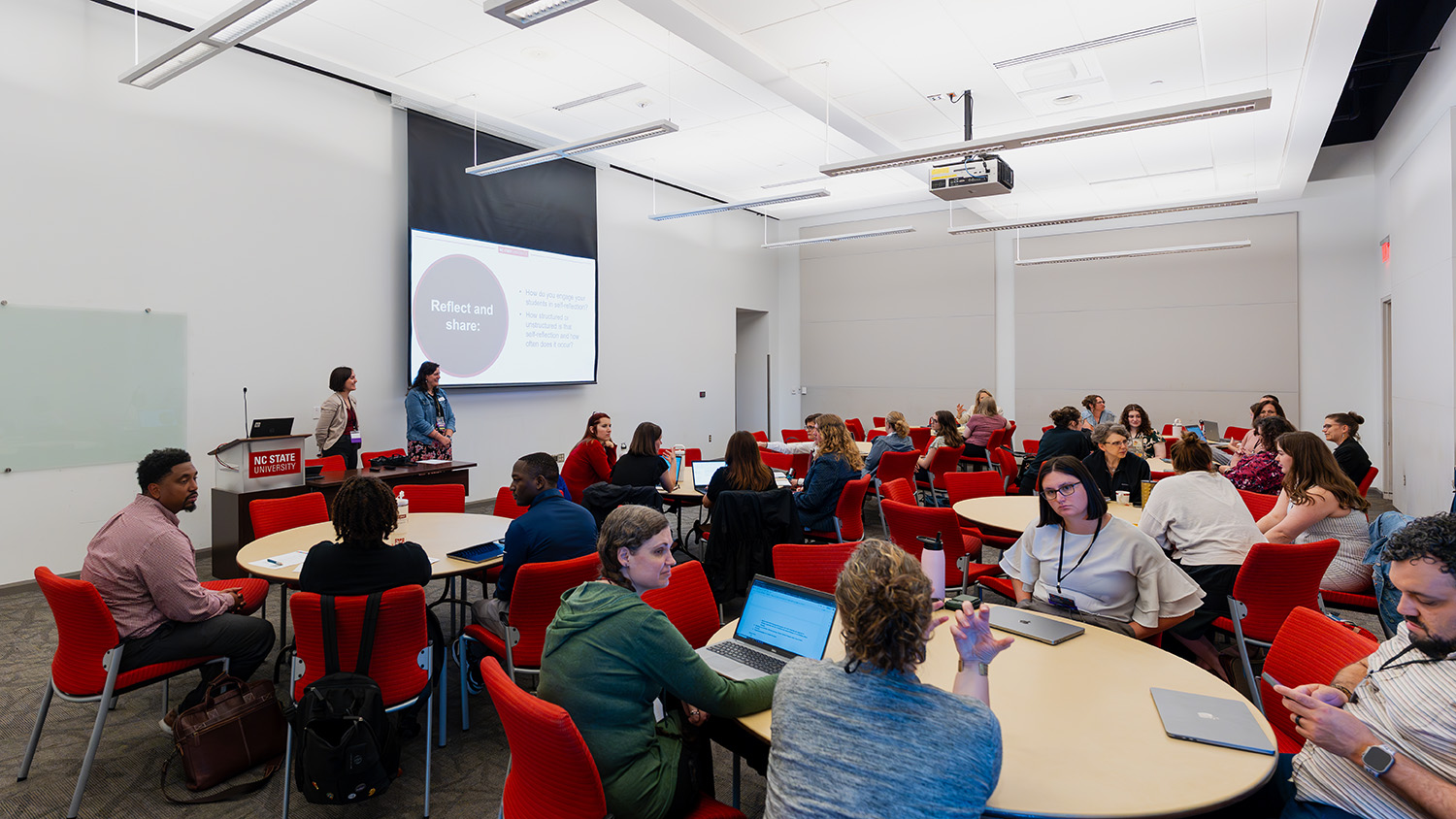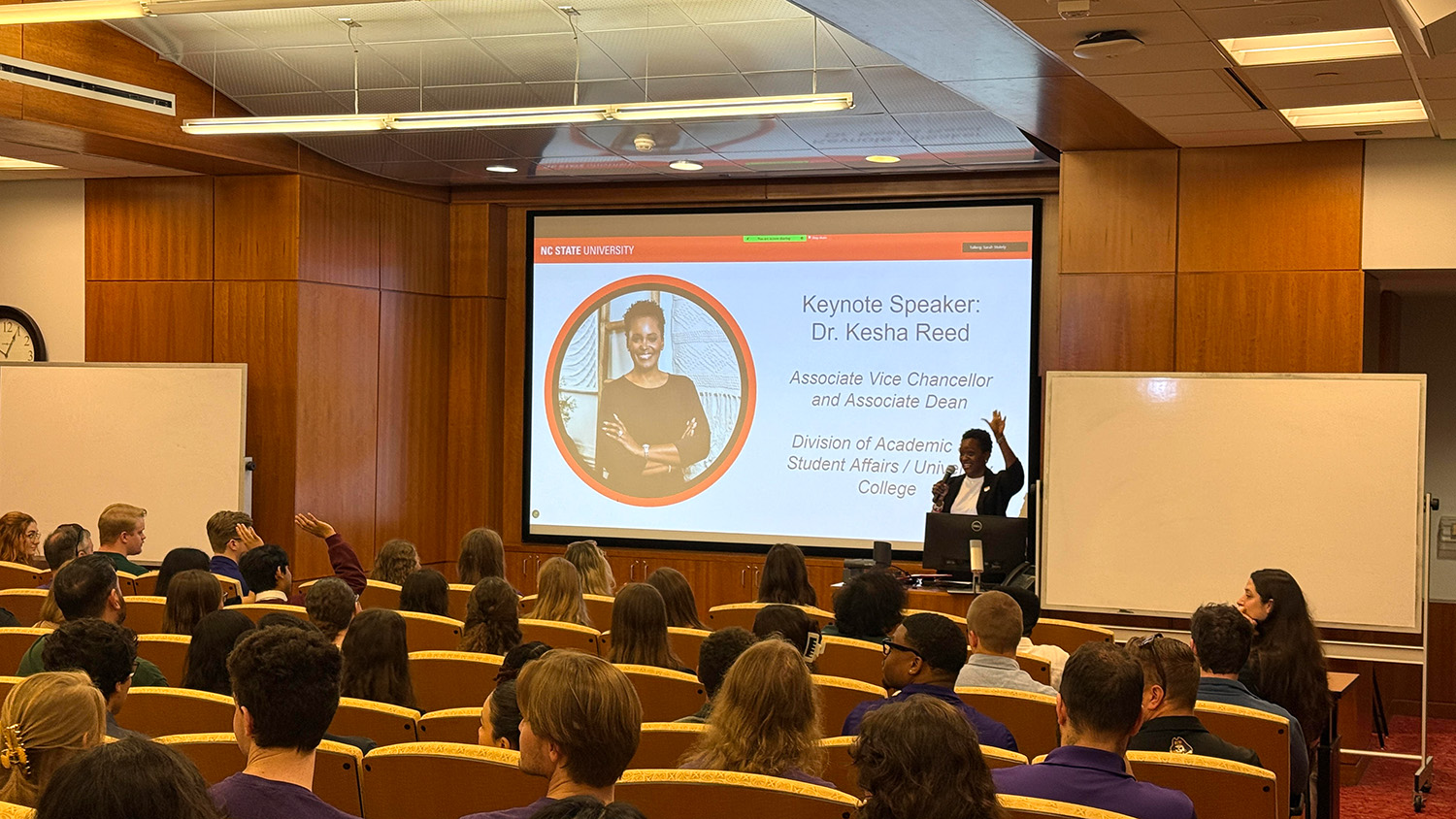By Alison Krowiak
The Division of Academic and Student Affairs has a commitment to improve student success at NC State. We achieve this through Retention Foundations Assessment, DASA’s ongoing assessment of some of the many factors that influence student retention and success. Throughout the 2018-2019 academic year, teams of faculty, staff, and students sought to learn more about students’ academic engagement at NC State.
“Data collection” teams laid the groundwork for this effort. Faculty and staff from throughout the division compiled existing survey findings from the Office of Institutional Strategy and Analysis and DASA Assessment. To supplement these findings, undergraduate Pack Assessment Ambassadors led focus groups with students to learn more about how students actively engage in their own learning and what factors may deter engagement. Another faculty and staff “implementation team” then reviewed all these data, curated an infographic (below), and developed workshops to present the most actionable findings to DASA units.

Twelve DASA units participated in workshops in which the implementation team shared academic engagement data points and encouraged staff to take action. The data revealed that 25 percent of first-year students report being not very or not at all confident in their ability to identify tutoring support during their first semester. Additionally, we observed a gap between first-year students (82 percent) who plan to participate in an internship/co-op, or field experience and seniors (66 percent) who reported having completed those experiences. In response, we asked DASA units to consider how they could direct students towards academic support resources and assist students in seeking out opportunities to independently apply learning outside of class.
Staff in six DASA units recently reported how they used the academic engagement data to make changes within their unit. For example, in spring 2020, Military and Veteran Services hosted an open house to introduce military affiliated and veteran students to academic and career resources. Additionally, TRIO Collegiate Programs held multiple events (e.g., Career Bootcamp and “Traveling While First in the Pack”) to help connect students to independent learning experiences.
DASA units demonstrate how small tweaks can make a big difference for students’ academic engagement. For example, Leadership and Civic Engagement began seeking out and including independent learning opportunities, such as internships, in their existing weekly newsletter to students. The Academic Success Center began sharing campus academic success resources through more channels, including in USC 210, tutor and peer mentor meetings with students, and the unit website which has links for study skills and other academic resources.
To learn more about how these DASA units and others are using data to expand access to support resources, promote pathways to independent learning experiences, and foster student-faculty connections, please see our website.
A new implementation team is working this fall to share information collected in 2019-2020 about students’ long-term goals and growth mindset. More information about how to request a unit-level presentation is coming soon!
Sources: First Year First Term Survey 2018, n=1889 (38% response rate) and National Survey of Student Engagement (NSSE) 2017, first-year n=625 (16% response rate), senior n=675 (17% response rate)
- Categories:



